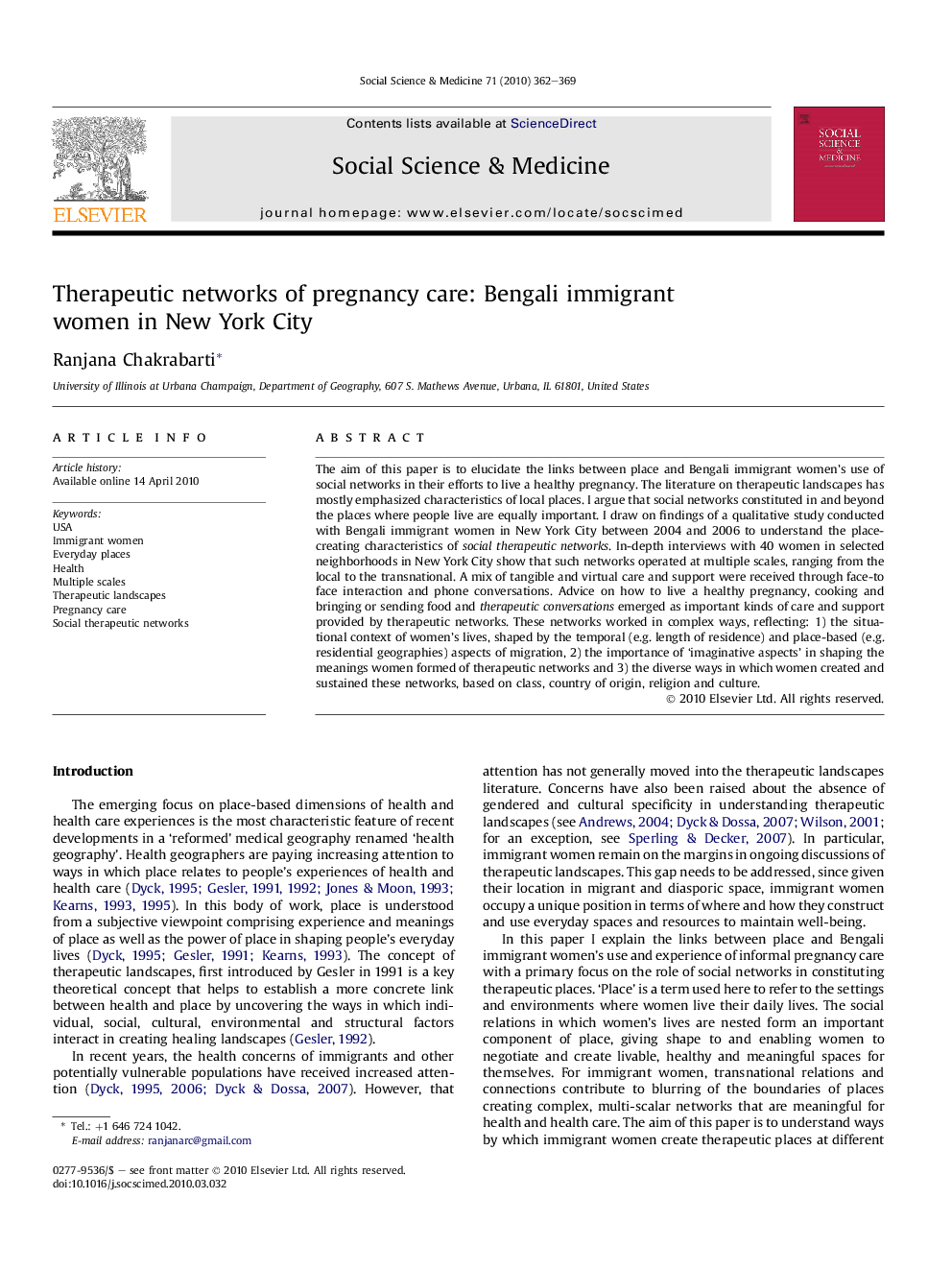| Article ID | Journal | Published Year | Pages | File Type |
|---|---|---|---|---|
| 953041 | Social Science & Medicine | 2010 | 8 Pages |
The aim of this paper is to elucidate the links between place and Bengali immigrant women’s use of social networks in their efforts to live a healthy pregnancy. The literature on therapeutic landscapes has mostly emphasized characteristics of local places. I argue that social networks constituted in and beyond the places where people live are equally important. I draw on findings of a qualitative study conducted with Bengali immigrant women in New York City between 2004 and 2006 to understand the place-creating characteristics of social therapeutic networks. In-depth interviews with 40 women in selected neighborhoods in New York City show that such networks operated at multiple scales, ranging from the local to the transnational. A mix of tangible and virtual care and support were received through face-to face interaction and phone conversations. Advice on how to live a healthy pregnancy, cooking and bringing or sending food and therapeutic conversations emerged as important kinds of care and support provided by therapeutic networks. These networks worked in complex ways, reflecting: 1) the situational context of women’s lives, shaped by the temporal (e.g. length of residence) and place-based (e.g. residential geographies) aspects of migration, 2) the importance of ‘imaginative aspects’ in shaping the meanings women formed of therapeutic networks and 3) the diverse ways in which women created and sustained these networks, based on class, country of origin, religion and culture.
